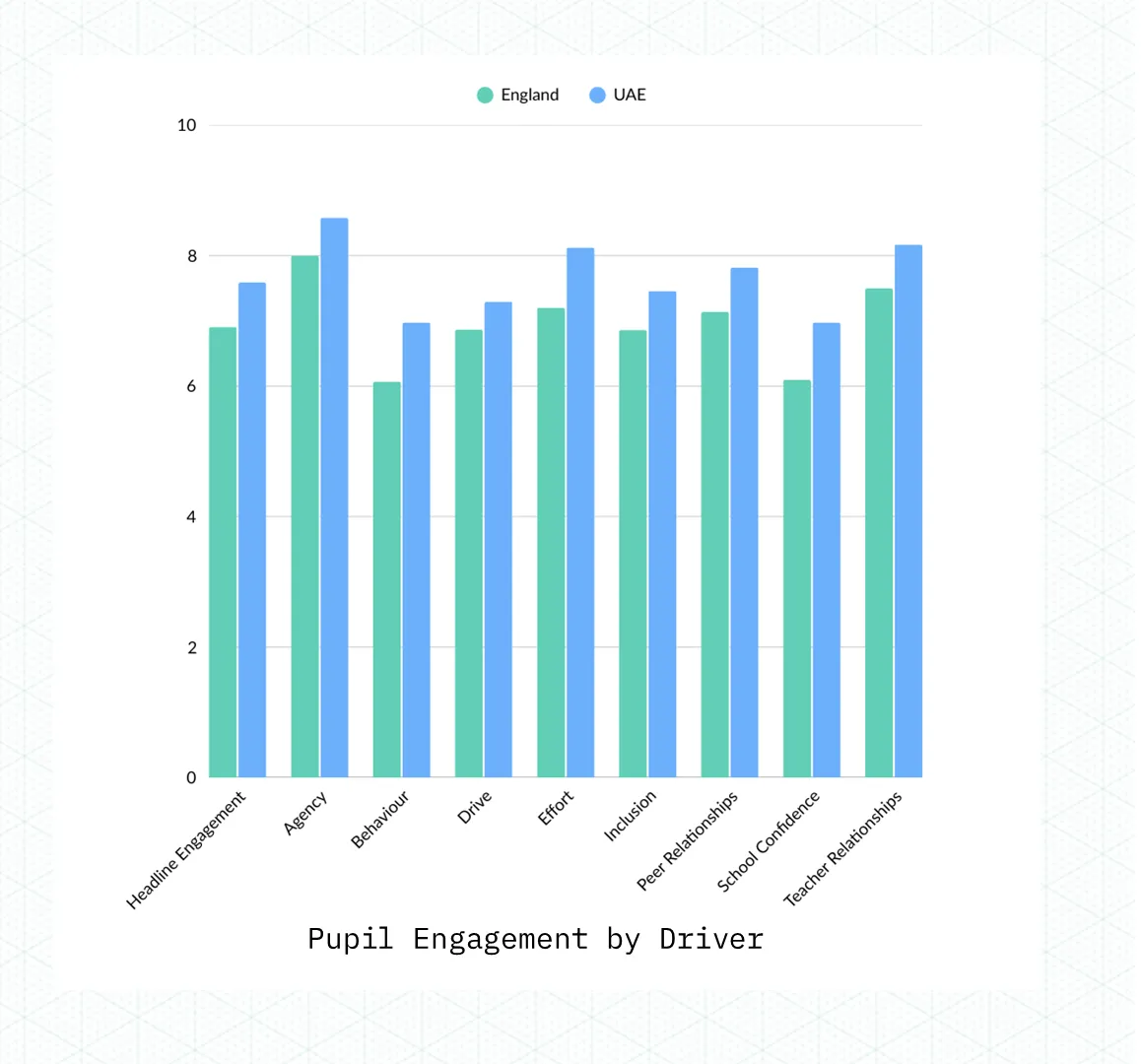The first phase pilot of The Engagement Platform (TEP) in the UAE has already given us compelling insights into how students and staff experience school life. While the headline news is encouraging – UAE pupils are showing strong engagement across the board – the data also uncovers trends that schools will want to watch closely if they aim to maintain happy, supported, and motivated students and employees.
Measuring Engagement with TEP
Originally developed to help UK schools gain actionable insights to drive improvement, The Engagement Platform (TEP) – the leading fixed measurement tool for school engagement – has now been piloted in the UAE, adapted to the country’s fast-growing, multilingual, and highly competitive school landscape.
The platform collects data on student and employee engagement, benchmarks it nationally, and provides demographic breakdowns to show how different groups experience school, identify risks, and pinpoint priority areas.
The first UAE pilot was a chance to see whether the insights TEP delivers in the UK could translate to a different education context – and the results are already eye-opening.
Students in the UAE Are Highly Engaged – But What Lies Beneath
One of the most striking findings is that students in the UAE are outperforming their UK peers across every engagement driver. Scores for areas such as Drive (7.3) and Effort (8.1) are higher, with an uplift ranging from +0.43 to +0.92 compared with the UK – where the average scores are 6.9 and 7.2 respectively. That means students are motivated, willing to work hard, and generally positive about school life.

These results are encouraging, but averages can sometimes mask the full picture. Digging deeper, the pilot uncovered trends that schools should pay attention to, such as striking differences between certain national and cultural student groups – which Phase Two aims to investigate in more detail.
The Transition Dip: Engagement Falls as Pupils Grow Older
While engagement is strong in younger years, the data shows a worrying dip as students move into secondary school. Pupils in Years 3 and 4 reported the highest engagement (around 8.3–8.8) and very positive teacher relationships (9.0+). By Year 7, however, engagement drops sharply to 7.1, and school confidence falls to just 5.4. The most significant decline occurs during the transition from Year 6 to Year 7, where confidence falls by almost 1.5 points.

This mirrors patterns seen in the UK, but in a competitive, fee-paying education market, a dip in student confidence can impact retention and enrolment. Families may reconsider school choices if their child seems to struggle with transition.
Adopting tools like TEP can be a real game-changer as school leaders can track engagement in real time and identify students most at risk – allowing timely interventions before retention and outcomes are affected.
Phase Two: A Deeper Look
The first phase of the pilot has been highly successful. Schools that took part are continuing their journey with TEP and have already begun to identify where to focus their attention to better engage their students. Involving more schools in Phase Two will mean working together to build a strong benchmark that reflects the true state of the region and allows for meaningful comparisons across schools.
As mentioned before, the pilot also highlighted variation between students of different cultural and national groups, reminding us that overall scores don’t tell the full story. This will be precisely the scope of the second phase of the pilot, starting this October – exploring how different demographic groups experience school, for example, Emirati vs. non-Emirati, boys vs. girls, younger vs. older year students.
By joining Phase Two, schools can turn these insights into actionable strategies, improving student retention, wellbeing, and outcomes, and creating a stronger sense of belonging for everyone.
Register your interest for Phase Two of the UAE pilot here.







.png)


